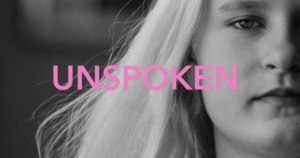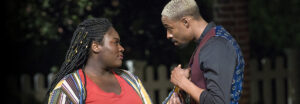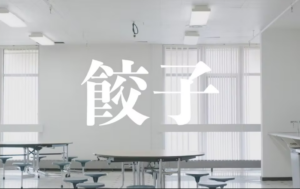Though we weren’t able to host a film festival during the virtual 2021 NCTE Annual Convention, the “Now Screening” committee would like to share this list of recommendations, with summaries and links to the films that we would have showcased in person.
—Dave Handelman and Christina Anker
Co-chairs, Now Screening Film Festival
 Trust Me, Directed by Roko Belic
Trust Me, Directed by Roko Belic
Synopsis: Trust Me explores how a lack of media literacy is causing physical, emotional, and political problems. Using personal stories and expert input, Trust Me answers the question: “Is the world doomed?”
“The concept for our film arose from seeing the gap between how people perceive our world and what the actual data shows in terms of positive evolution in human behavior. New media technologies have exacerbated this misperception,” said Joe Phelps, GBF’s founder and originator of the film. “And since, freedom of expression limits legislation, the obvious cure for media ill-literacy is education. We’re hoping that Trust Me helps accelerate that learning.”
Because of media information literacy’s (MIL) role in modern warfare, NATO categorizes it as a priority. Aligned with this priority, the U.S. State Department featured Trust Me at its global conference on media literacy in September. US middle and high schools received the film alongside a link to a 24-page Trust Me media literacy study guide with a link to stream the film that they can play in their classrooms through News Literacy Project, an organization that works with educators and journalists to give students the skills they need to discern fact from fiction and to know what to trust. “The internet has opened a world of information to billions of people. But, at the same time, it has spawned an insidious counterforce: the mass dissemination of accidental misinformation and intentional disinformation,” said Roko Belic, Trust Me’s director and Oscar nominated director of Happy.

Don’t Be Nice, Directed by Max Powers
Synopsis: The upstart Bowery Slam Poetry Team, made up of five young African American, Afro-Hispanic and queer poets, prepares for the national championships. Mentored by a demanding coach who pushes them past their personal boundaries to write from a painfully honest place, the poets break down, break through, and compose their best work ever. Will their soul-searching pieces about police violence and the whitewashing of Black culture be able to compete against choreographed crowd-pleasers for the title?
Dumpling, Directed by Xiaolu Wang
Dumpling is a grant-funded short film based on the director’s lived experience of moving from China to a predominantly white, rural American town when she was 14. The story takes place on Xiao Xing’s first day of high school after the move, where she begins to feel othered and isolated in her public school cafeteria. She preserves her identity by eating dumpling she brought from home. Dumpling blends traditional narrative with magic realism to reflect on the struggle to belong.
 Unspoken, Directed by Emma Zurcher-Long and Geneva Peschka
Unspoken, Directed by Emma Zurcher-Long and Geneva Peschka
“14-year-old Emma Zurcher-Long invites the viewer on her quest to enrich understanding of what it means to be human in this collaborative self-portrait that portrays her dynamic life as an autistic teenager. For years, Emma’s intelligence was continually underestimated as she struggled to communicate her feelings, needs, and fears to her friends and family. But for the first time in her life, her true voice is finally heard when she begins typing, seeing, and hearing the world in ‘hi-res, technicolor and surround sound’. Through her keyboard, Emma strengthens her connection with others, and her insightful writing is both a catalyst for, and a remedy to, the fear and misunderstanding that surrounds autism. Living in the beauty beyond spoken language, Emma is challenging the societal judgment surrounding autism, one keystroke at a time.”
 We Are The Radical Monarchs, Directed by Linda Goldstein Knowlton
We Are The Radical Monarchs, Directed by Linda Goldstein Knowlton
A group of tween girls chant into megaphones, marching in the San Francisco TransMarch. Holding clenched fists high, they wear brown berets and vests, showcasing colorful badges like “Black Lives Matter” and “Radical Beauty.” Meet the Radical Monarchs, a group of young girls of color at the front lines of social justice.
Set in Oakland, a city with a deep history of social justice movements, We Are The Radical Monarchs documents the Radical Monarchs: an alternative to the Scout movement for girls of color, aged 8-13. Its members earn badges for completing units on social justice including being an LGBTQ ally, the environment, and disability justice. The group was started by two, fierce, queer women of color, Anayvette Martinez and Marilyn Hollinquest as a way to address and center her daughter’s experience as a young brown girl. Their work is anchored in the belief that adolescent girls of color need dedicated spaces and that the foundation for this innovative work must also be rooted in fierce inter-dependent sisterhood, self-love, and hope.
“Our film follows the first troop of Radical Monarchs for over three years, until they graduate, and documents the Co-Founders struggle to respond to the needs of communities across the US and grow the organization after the viral explosion of interest in the troop’s mission to create and inspire a new generation of social justice activists.”

“For the first time in over four decades, THIRTEEN’s Great Performances series presents a Public Theater production recorded live at Free Shakespeare in the Park. After a highly successful, critically acclaimed run at the outdoor Delacorte Theater in New York City’s Central Park, Much Ado About Nothing joins the third annual Great Performances ‘Broadway’s Best’ lineup.
This bold interpretation of Shakespeare’s comedic masterpiece features Danielle Brooks (“Orange is the New Black,” Broadway’s “The Color Purple”) and Grantham Coleman (“Buzzer,” “The Americans”) as the sparring lovers Beatrice and Benedick. Tony Award winner Kenny Leon (“American Son,” “A Raisin in the Sun”) directs with choreography by Tony Award nominee Camille A. Brown (“Choir Boy”).”
How can these films be used with students?


